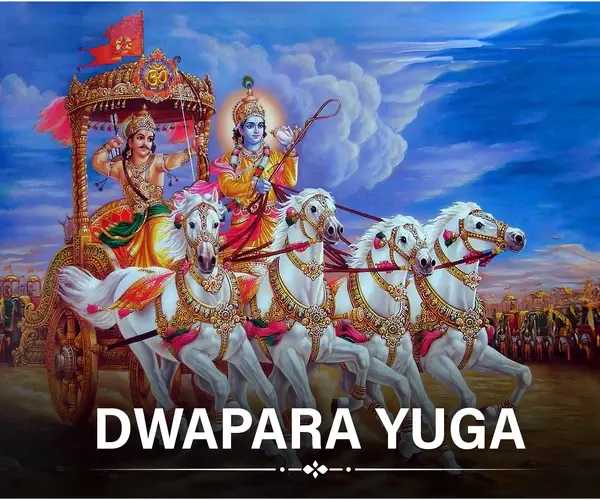Kamla: A soul filled with longing...
- harish segon

- May 16, 2021
- 4 min read

Kamla was my maternal aunt. She was paralytic in an unusual way. Her body was straight and stiff as a branch. She could only move her arms and head. But her smile always reached her eyes and her heart was full of love.
Kamla lived with her parents in their ancestral home in Rawalpindi in undivided India at the end of 19th century. When she was 13 years old, she developed body pains that lasted many days. Her parents consulted many doctors but there was no improvement in her condition. One day, Kamla was sitting in the verandah of her house, looking at the leaves of the big mango tree, just outside the house, dancing joyfully in the breeze of the autumn evening.
It was in that moment her fate was sealed. A sadhu approached the house, asking for alms. On seeing Kamla, he striked a conversation with her. Kamla, in her innocence and of a strong belief in God granting all wishes through sadhus, told him everything about her body pains. On listening to Kamla, the sadhu said in a trance-like tone, "God has heard your prayers and sent me to cure you". Kamla's parents were filled with hope. They pleaded with sadhu baba to help the poor child. Getting validation to his claims, the sadhu became more dramatic. He sat crossed-legged and started chanting mantras in a loud voice. Like a showman, he put his hand inside his bag, slowly bringing out Vibhuti (ash) and some medicine pudias (medicine packed in local paper).
Applying Vibhuti (ash) on Kamla's head, he took the medicine pudias in his hand and started swaying from side to side. My maternal grandparents and Kamala, stood with folded hands in a state of reverence, waiting for God's magic to strike. After several minuets of swaying, the sadhu baba opened his eyes and announced in a low-pitched shrieking tone to Kamla's mother, "The God has spoken. Make your daughter pray to Lord Shiva tomorrow morning on empty stomach and take the medicine". Then he raised his finger at the sky and said melodramatically, "The God is merciful. She will be cured of her illness forever".
Saying this, he looked expectantly at Kamla's father, who hastily explored the pocket of his crisp blue kurta and turned in all the notes from his pocket. Sadhu baba's eyes lighted with delight as he collected his ‘dakshina’ (money) and vanished into thin air as speedily as he had appeared. Next morning proved to be doomsday for Kamla. As the medicine went down her throat, she started shaking violently. The doctor pleaded helpless diagnosing the intake of a highly poisonous herb. Within a week, despite treatments, Kamla's entire body became stiff, except her arms, neck, face and head.
I was a child when this horrible tragedy struck my aunt Kamla. Since then, I developed a conscious dislike for sadhus, ashrams and wrong use of false promises under the name of religion. Seeing Kamla suffer for no fault of her's, I also learnt early in life that our life is a sum total of past and present deeds. Our karmas have to be lived. Despite her paralysis, Kamla was a positive and noble soul always willing to help everyone in household chores. I remember her always asking my mother, behan ji, dijiye, subji mein kaat deti hoon’ (Sister, let me chop vegetables).
Kamla Massi lived with us after she became older. She sometimes travelled to Ambala to live with Soma Massi, my mother's younger sister. She could not sit and stood the whole day using two sticks. My mother handed over the charge of the entire household expense to her. This was done to welcome her into the family and make her feel included. Kamla Massi settled in like duck takes to water. She was extremely fond of me as a child. After my bath, she would apply ‘kajal’ on my eyelids, mustard oil on my face and comb my hair affectionately. Like any other naughty child, sometimes I obliged and at other times, I dodged her. Mustard oil was freely used in North India during those days. The oil is well known for its medicinal properties, but it is bitter and burns the skin when applied. When she caught hold of me, she would always bless me fondly.
Although her body was stiff and uncooperative, Kamla was blessed with a beautiful yet hauntingly sad golden voice. After the day's chores were over, Kamla retired to her room. I often heard her humming in the night as she lay down to sleep. In the dead of night, she often sang a famous song of Shiv Batalvi, expressing the longing of a newly married woman for a child, whose husband is in the faraway lands to earn his livelihood. It went like this ‘.....miti da bawa banani ha, ve chagga pani ha, ve utte deni ha khesi naa ro miti de bawaya ke tera paiyo pardesi’ (I made a boy doll out of soil from mother earth, dressed him up and put a coarse bed sheet over him so that he may rest. Please do not cry my child made of soil, we cannot do anything as your father is in faraway lands).
I always listened mesmerized as she sang and hummed this song into the night. During that time, I could never understand the pain that her voice communicated. It was only after I grew up that I understood the longing in Kamla's life.
Kamla massi passed away soon after I joined army, but her kindness, love and most importantly her haunting voice full of longing still remains imprinted in my heart.
** The song, Mitti de Bawaya has been sung by several accomplished singers including Ustad Shujaat Hussain and Jagjit Singh. But my favourite is Ustad Shujaat Hussain bringing out the best of melody in the song in his voice as well as on his Sitar. He sings this song with all the emotions, bringing out the pathos and longing of a newly married women, whose husband is in distant land.





On the right of the case, you will link see only a crown. This is a mono-pusher piece, so there is only one small button to use link to activate link and stop the chronograph mechanism. It is actually, the main attraction of the Longines Column-Wheel Single Push-Piece Chronograph.
Johnson's watch collecting has link followed a similar trajectory. Starting with popular mall watches of link the early 2000s, he steadily traded link up to microbrands, then Seikos, then some blue-chip references, ending with a mix of all of the above.
Looking at the movement, you can see why. The mass of bridges and levers required to stop a single chronograph hand while link letting the other hand run is just a beautiful mess. I'm no watchmaker or designer, but there's something instantly obvious to me about how difficult it would be to place everything necessary to make link the link chronograph work. It's also a good example of why the new Concept is so revolutionary for AP.
On the opposite end of the spectrum from an integrated-bracelet hobnail-finished link AP is a watch like Glycine's Airman or an Omega Seamaster 300. Those two are more link likely to be found on the wrist of a man wearing hobnail boots in the field, the drop for this link week does show the range of the vintage world. As always, read on for our three favorites and why, or check out the full collection in the slideshow and in the Vintage Watches section of the Shop.
One of my all-time faves link is this Speedmaster Apollo-Soyuz from 1976, commemorating the famous mission from one year earlier. Omega only produced 500 units of this watch at the request of the brand's Italian distributor. It came link on this Oyster-style bracelet, which link does look good!